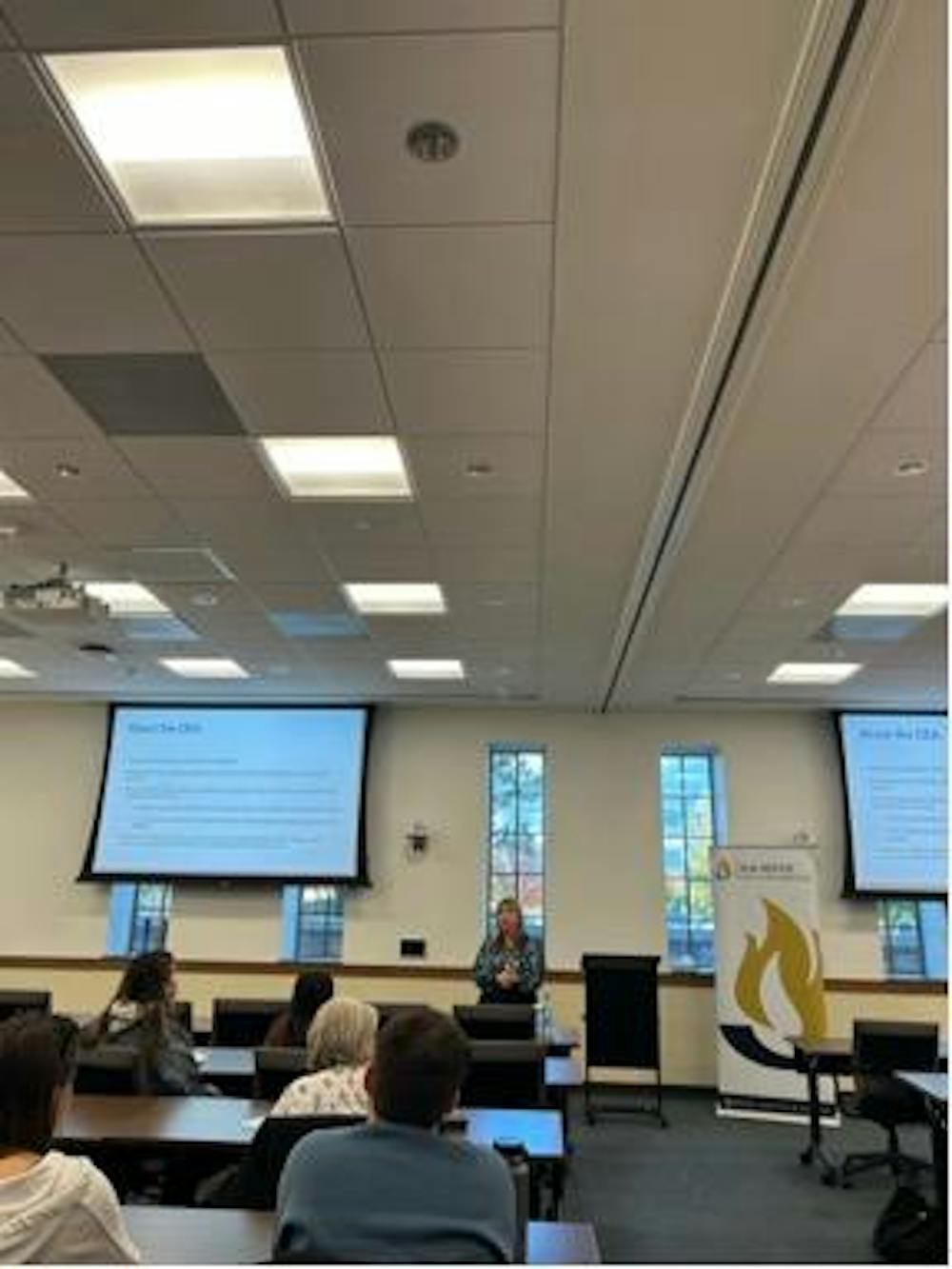On Wednesday evening, the last installment of the series “Pizza, Pop and Politics” by NDVotes and the Klau Institute for Civil and Human Rights took place in Jenkins-Nanovic Halls, this time discussing “Election 2024 and the Economy.”
Chloe Gibbs, assistant professor of economics, used her background as a microeconomist, a PHD graduate from the University of Chicago in public policy and a past senior economist under the Biden-Harris Administration’s Council of Economic Advisers from 2022 to 2023 to discuss the impact of the economy on the upcoming U.S. election.
Gibbs questioned the famous assessment by James Carville, one of Bill Clinton’s economic advisors in 1992, that, “It’s the economy stupid,” given that “since 2002, there has been essentially no relationship between economic sentiment and approval for the presidential administration in the U.S.”
Citing a University of Michigan report, Gibbs noted that there is currently one of the largest gaps between predicted and actual consumer sentiment on the economy since 2008.
She addressed the mismatch of what we would expect, given the U.S.’s low unemployment rate, strong GDP growth and easing inflation and the reality of low consumer sentiment in the U.S.
“People feel much worse about the economy than it actually is,” Gibbs said.
This mismatch, explained Gibbs, shows that the “relationship between economic fundamentals and consumer sentiment has broken down.”
Gibbs stressed that highly partisan consumer sentiment about the economy has driven this divergence. She cited a study which showed Democrats usually feel about six points better about the economy under a Democratic administration and six points worse under a Republican administration, and Republicans tend to feel about 15 points better under a Republican administration and 14 points worse under a Democratic administration.
Gibbs went on to discuss the differences between Donald Trump’s and Kamala Harris’ proposed policy plans.
She presented a Wall Street Journal survey that showed economists generally think inflation is likely to be higher under a Trump administration than a Harris administration. She also presented analysis from the Committee for a Responsible Federal Budget, a nonpartisan think tank, that estimated that Trump’s proposed policies will increase federal debt by about $7.5 trillion, whereas Harris’ proposed policies would only do so by about $3.5 trillion.
Some of Harris’ proposed policies that Gibbs noted would require considerable expenditure were expanding the child tax credit and earned income tax credit, supporting affordable housing and establishing national paid family and medical leave. Gibbs said Harris plans to raise taxes on corporations and high earners accordingly.
Gibbs discussed Trump’s more expensive policy initiatives, which include strengthening and modernizing the military, securing the border and deporting illegal immigrants and boosting support for health care, which he plans to pay for through tariffs.
The discussion ended with a question and answer between audience members and Professor Gibbs.
One audience member reflected on the significantly lower prices seen four years ago during the 2020 election and asked Gibbs’s opinion on how we can predict prices following the 2024 election.
Gibbs responded transparently.
“I don’t think prices are going back, but here’s the good news: I also don’t think wages are going back either,” she said.
Gibbs also answered questions about the effects of Trump’s proposed tariffs, the role of executive orders in implementing policy plans and strategies to decrease the cost of higher education.










